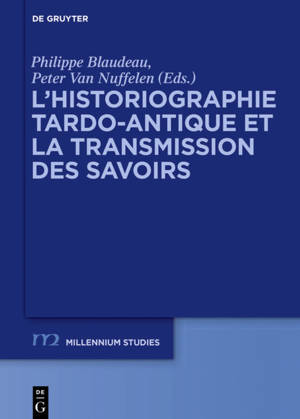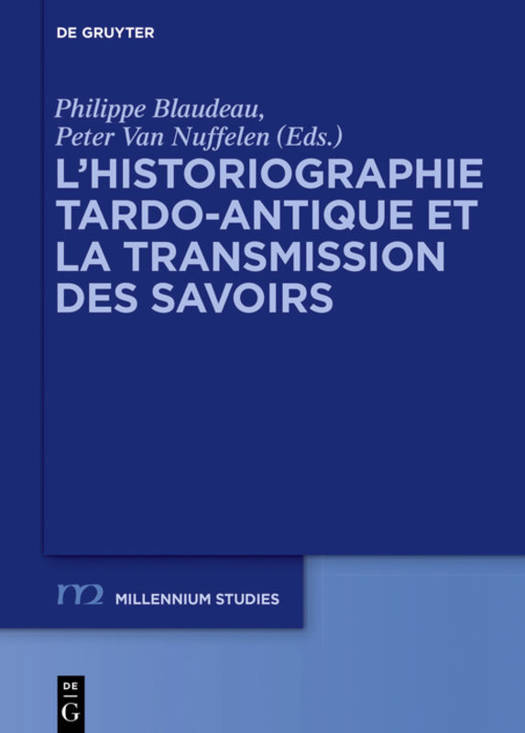
- Retrait gratuit dans votre magasin Club
- 7.000.000 titres dans notre catalogue
- Payer en toute sécurité
- Toujours un magasin près de chez vous
- Retrait gratuit dans votre magasin Club
- 7.000.0000 titres dans notre catalogue
- Payer en toute sécurité
- Toujours un magasin près de chez vous
L'historiographie tardo-antique et la transmission des savoirs
Description
Late Antiquity witnessed enormous cultural changes, affecting all areas of intellectual life. Historiography is one of the most characteristic genres of this period and perhaps one of the most innovative ones. This volume seeks to understand how historiography both responded to the cultural changes and shaped these at the same time. Indeed, a historiographical work aims at providing its readers with experiences from the past and at interpreting these in a meaningful way and often seeks to integrate this type of knowledge into a wider body of knowledge. This theme is explored from six angles in the present volume: 1) the relationship between historiography and rhetoric; 2) the transmission of classical rhetorical culture to areas beyond the Roman Empire 3) the circulation of information, traditions and documents in the whole area of the Roman Empire and frontier areas; 4) the role played by intellectual groups (clerical and lay) in this process 5) the social, cultural, and religious variety of audiences; 6) the impact of difference in genre on the engagement with forms of knowledge.
Spécifications
Parties prenantes
- Editeur:
Contenu
- Nombre de pages :
- 392
- Langue:
- Français
- Collection :
- Tome:
- n° 55
Caractéristiques
- EAN:
- 9783110406931
- Date de parution :
- 12-06-15
- Format:
- Livre relié
- Format numérique:
- Genaaid
- Dimensions :
- 178 mm x 244 mm
- Poids :
- 793 g

Les avis
Nous publions uniquement les avis qui respectent les conditions requises. Consultez nos conditions pour les avis.





